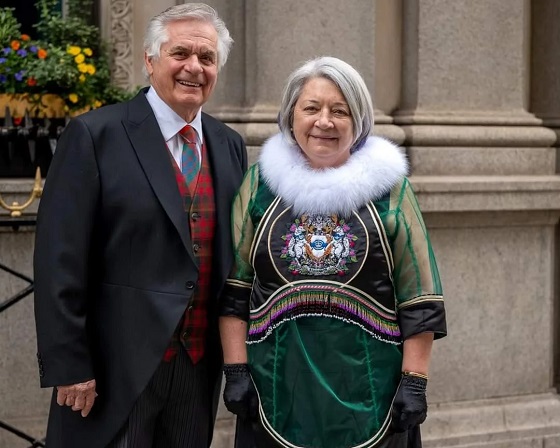Business
Over $2B California Solar Plant Built To Last, Now Closing Over Inefficiency
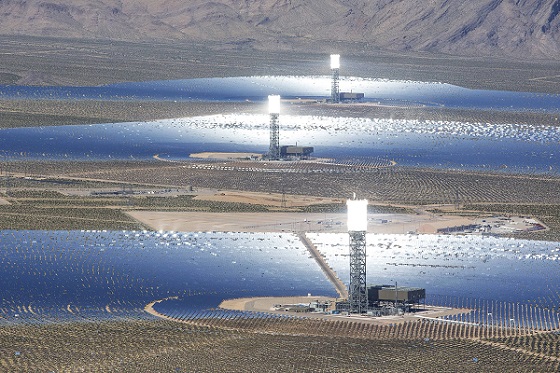

From the Daily Caller News Foundation
By Hailey Gomez
The partially taxpayer-funded Ivanpah Solar Power Facility in California’s Mojave Desert is set to shut down in 2026 due to inefficiency in generating solar energy, according to the New York Post.
The $2.2 billion plant, which features three 459-foot towers, was greenlit in 2010 and completed in 2014. According to the New York Post the closure stems from the site being “outpaced by solar photovoltaic technology” and proving both inefficient and costly. The shutter of the site comes more than a decade ahead of its original 2039 end date, according to the Associated Press.
Speculation about Ivanpah’s early closure began in January, when Pacific Gas & Electric announced an agreement with the plant’s owners to terminate its contracts.
“Ivanpah Solar was built when developers were investing in many different types of clean energy. The goal was to find efficient and affordable technologies to reduce the need for greenhouse gas-emitting fossil fuels,” PG&E wrote in a January press statement.
“The technology had worked on a smaller scale in Europe. Spain had several concentrating solar projects of up to 20 megawatts. In the 2000s and 2010s, various private companies invested in large-scale concentrating solar power in the United States. But over time, solar photovoltaic technology raced ahead of its rival in affordability,” the press statement continued.
Funds for the massive plant partially came from former President Barack Obama’s Department of Energy, which in 2011 issued $1.6 billion in three federal loan guarantees under former Secretary of Energy Ernest Moniz. At the 2014 opening, Moniz touted federal support for the project, calling it “a shining example” of America’s leadership in solar energy.
“The Ivanpah project is a shining example of how America is becoming a world leader in solar energy,” said Secretary Moniz, as reported by PBS. “As the President made clear in the State of the Union, we must continue to move toward a cleaner energy economy, and this project shows that building a clean energy economy creates jobs, curbs greenhouse gas emissions, and fosters American innovation.”
In recent years, California has faced mounting problems with solar energy and refineries. In August 2024, major rooftop solar company SunPower filed for Chapter 11 bankruptcy in Delaware after struggling with issues like California’s rooftop solar subsidy programs and high interest rates.
Business
Watchdog Calls Out Carney’s Lack of Ethics Code

Democracy Watch Demands PM Re-Enact Full Ministerial Code and End Conflicts by Selling Investments as House Committee Probes Loophole-Ridden Ethics Law
The House of Commons Ethics Committee is finally cracking open the federal Conflict of Interest Act. It’s the first real review in years. And it’s overdue. Today, Democracy Watch is calling on Prime Minister Mark Carney to do something simple and obvious: re-issue the Prime Minister’s code for ministers and staff—publicly, in full—and work with every party to shut the gaping loopholes that have turned Canada’s ethics rules into a suggestion box.
The only publicly posted rulebook is still the 2015 “Open and Accountable Government” guide. It wasn’t signed by Mark Carney. It was signed by Justin Trudeau. Before that, Stephen Harper had his own “Accountable Government” code in 2007, which he strengthened in 2011. Paul Martin re-issued the code in 2004 as “Responsible Government,” and Jean Chrétien was the first to bring it in back in 2002. Every Prime Minister for more than two decades has put their name to a code—except Carney.
That’s a problem. Canadians deserve crystal-clear, enforceable standards: honesty, no apparent conflicts, decisions based on merit, real guardrails on political activity, fundraising, and dealings with lobbyists—and ministerial staff held to the same line. Put the rules in the PM’s own name or admit you plan to weaken them.
“Failing to re-enact the code—or watering it down—would gut already weak rules and further trash public trust,” said Duff Conacher, PhD (Law), Co-founder of Democracy Watch. “Canadians want standards with teeth, not press releases dressed up as ethics.”
Here’s what’s driving the urgency. The Conflict of Interest Act still lets the Prime Minister park massive holdings behind instruments branded as “blind trusts” or “ethics screens.” In practice, those devices often conceal participation; they don’t prevent it. That’s not oversight. That’s camouflage. Democracy Watch’s position is blunt: if you want to end the conflicts, sell the assets. Full divestment, including buyouts of stock options by Brookfield and any other connected companies, as past inquiries recommended.
“Prime Minister Carney’s so-called blind trust is not blind, and his ethics screen is an opaque mechanism that invites doubt about who benefits when the government acts,” Conacher said. “The fix is obvious: sell the investments. Anything less keeps Canadians in the dark.”
Parliament now has a choice. Use this committee review to close loopholes around blind trusts and ethics screens. Spell out what “improperly furthering private interests” really means. Put real independence, transparency, and penalties into law. And stop the double standard: cabinet and staff should face rules at least as tough as those on public servants and senators.
Democracy Watch is also urging broader reforms: clean up lobbying secrecy, slash the federal donation limit to cut off cash-for-access politics, protect whistleblowers who tell the truth, fix the federal access-to-information black box, and take the appointment of watchdogs out of the hands of the very politicians they’re supposed to police—no re-appointments, no cozy incentives.
And let’s be clear: this isn’t just Democracy Watch griping. It has credible grounding in the history of Canadian ethics law. The 1984 Starr–Sharp Task Force laid out a blueprint for a comprehensive ministerial code. Justice Parker’s 1987 commission went further, flatly recommending an end to the shell game of so-called blind trusts and, in cases of serious conflicts, requiring divestment. Parliament’s own research notes confirm it: the idea that you can “screen” away conflicts was discredited almost forty years ago. The fix was spelled out back then.
And yet here we are, in 2025, with a Prime Minister sitting on massive investments, hiding behind loopholes, and ducking responsibility to even sign his own code of conduct. Canadians see it. They know the difference between rules with teeth and ethics theatre.
Enough posturing. Enough smoke and mirrors. Re-enact the full PM Code today. Tighten the Act tomorrow. And end the Prime Minister’s conflicts by selling the assets outright. That’s how you rebuild trust, by earning it, by setting an example, and by standing on principle.
But let’s be honest: he won’t do it. He won’t because these Liberals are swamp creatures to their core. They talk transparency while cashing in behind the curtain. They preach accountability while hiding their own dealings. Canadians know it, and they’re sick of it.
Subscribe to The Opposition with Dan Knight .
For the full experience, upgrade your subscription.
Business
Taxpayers: Stop wasting money and scrap the gun ban

The Canadian Taxpayers Federation is calling on the federal government to scrap its failing gun ban and confiscation program after announcing a pilot project to confiscate firearms from individual Canadians.
“Law enforcement experts have stated the gun ban and confiscation won’t make Canadians safer,” said Gage Haubrich, CTF Prairie Director. “Confiscating guns from licenced gun owners won’t keep illegal guns out of the hands of criminals.
“Taxpayers can’t afford to spend another dollar on what is amounting to be an absurdly expensive piece of government performance art.”
The federal government announced that it will starting a pilot project to confiscate firearms from individuals in Cape Breton, Nova Scotia.
The federal government banned more than 2,500 models of firearms since 2020. Before they were banned, all those firearms were used for hunting or sports shooting by Canadians who passed safety tests and background checks.
The police and other experts have publicly stated this scheme won’t make Canadians safer.
“It won’t impact crime rates,” said Doug King, a professor of justice studies at Mount Royal University.
The National Police Federation, the union representing the RCMP, says Ottawa’s program “diverts extremely important personnel, resources, and funding away from addressing the more immediate and growing threat of criminal use of illegal firearms.”
“We know that the gun buyback program is going to have, essentially, zero impact on the crime in Toronto,” said Clayton Campbell, the president of the Toronto Police Association.
Since the guns were initially banned in 2020, meaning it’s illegal to use them, violent firearm crimes in Canada have increased.
The government said the confiscation would cost taxpayers $200 million in 2019. In reality, the cost of providing compensation for the confiscated guns could be up to $756 million, not including administration costs, according to the Parliamentary Budget Officer. Other experts have put the total cost at more than $6 billion.
The government has a history of ballooning costs for these programs. The government initially promised the long-gun registry would cost taxpayers only $2 million. The final tab was more than $2 billion.
“Cops, academics, licenced gun owners and everyday taxpayers know that this program won’t do anything to make Canadians safer,” said Franco Terrazzano, CTF Federal Director “The federal government needs to listen to the police and scrap this program before another penny of taxpayers’ money is wasted.”
-

 Business2 days ago
Business2 days agoPublic Safety Minister admits gun buyback program is waste of money and resources – 742,000,000 projected cost to taxpayers
-

 Health2 days ago
Health2 days agoMedical experts urge Supreme Court to protect women’s sports from ‘transgender’ males in landmark case
-
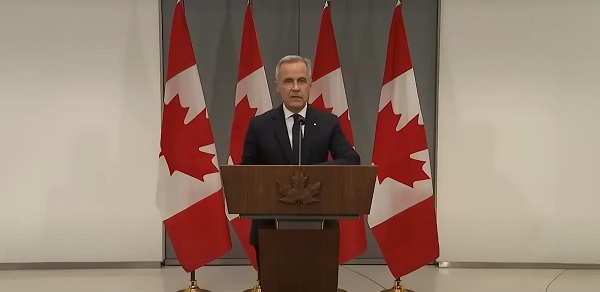
 National24 hours ago
National24 hours agoStatscan: Canada is getting Older, Poorer, and Smaller
-
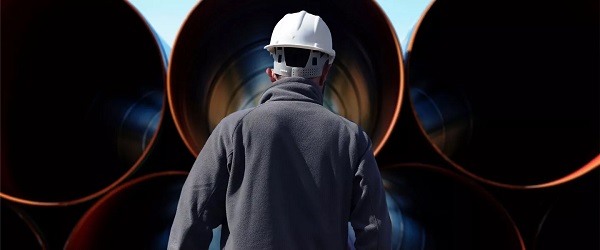
 Alberta2 days ago
Alberta2 days agoFederal policies continue to block oil pipelines
-
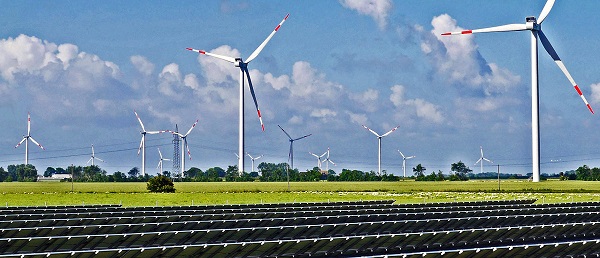
 Energy17 hours ago
Energy17 hours agoBig Tech’s ‘Misleading’ Green Energy Claims May Plunge Nation Into Blackouts, AGs Warn
-

 Canadian Energy Centre2 days ago
Canadian Energy Centre2 days agoAltaGas boosts Canada-Asia energy trade with new butane exports
-

 Business2 days ago
Business2 days agoX challenges Ireland’s ‘Online Safety Code,’ warns of EU-wide censorship threat
-

 Business1 day ago
Business1 day agoGoogle Admits Biden White House Pressured Content Removal, Promises to Restore Banned YouTube Accounts




